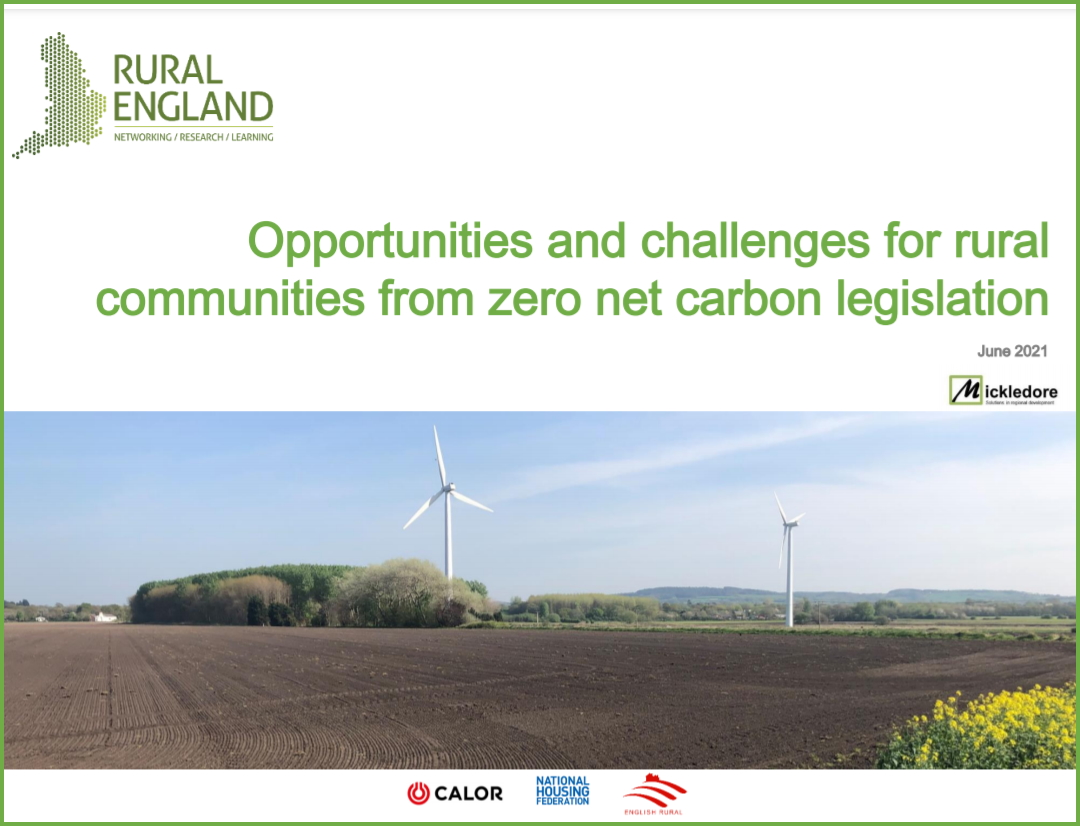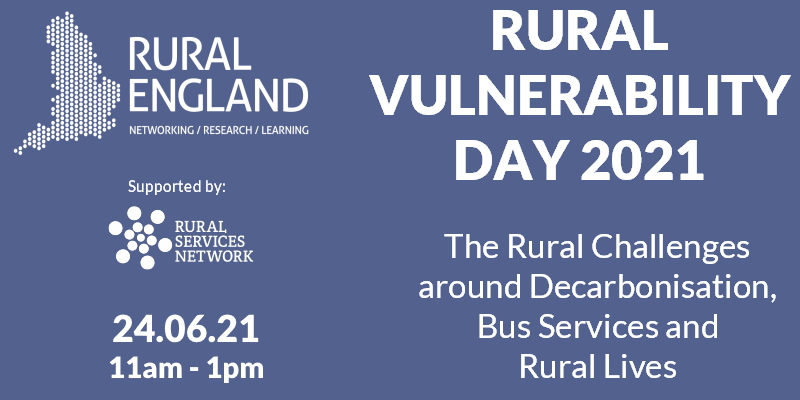T: 01822 851370 E: [email protected]
Visit RSN Survey about life in rural England to find out more.
Rural England hosts Rural Vulnerability Day 2021
Last week, supporters and stakeholders of Rural England came together for this year’s Rural Vulnerability Day.
Usually taking place in Portcullis House, this year the event took place online, with over 60 attendees including Members of Parliament and Members of the House of Lords.
Rural England CIC carries out independent research, networking and information exchange across Rural England. They thereby aim to inform and engender better rural policy making.
Hosted by the Chair of Rural England CIC’s Stakeholder Group, Margaret Clark CBE, the session started with the launch of the Rural England Report, ‘Opportunities and challenges for rural communities from zero net carbon legislation’. Sponsored by Calor, the National Housing Federation and English Rural housing association, the report produced by associates at Mickledore Consultants aims to explore the rural dimension to decarbonisation in the energy, housing and transport sectors.
Key findings of the report show:
- Rural Areas are not all the same, the route to zero carbon will differ by area, but there needs to be a viable commercial model, and where this is achieved, rural economies can develop new economic sectors and jobs.
- Zero carbon heat starts with better insulated buildings - an issue for older rural buildings. A combination of biofuels and electrification of heat is required – with biofuels reducing emissions immediately and a potential transition to heat pumps in those low density rural areas where it is economic and technically feasible. Hydrogen may become a future solution – but delaying deployment of existing technologies now will result in policy goals being missed.
- Incremental change is difficult and there is currently a lack of clear political leadership – the central legislation is weak around low carbon requirements for new homes, provision of EV charge points, enablement of local grids and many other relevant areas. This ties the hands of local government to drive change.
- Statutory planning legislation changes have created barriers to local power generation whilst downward pressure on feed-in-tariffs have undermined the commercial model for investment. The bolt on financial incentives from government are piecemeal removing any clear signposting for the preferred technical solutions.
- There is an urgency for action and direction would stimulate the rural economy creating an opportunity for business – building improvements, supply chains, installation, repair and maintenance. There is also room for new financial models – commercial service provision (of heat for example) or equipment financing.
The full report can be accessed below:
 |
Vulnerability Day also included presentations from the Head of Strategy and Corporate Affairs at Calor, along with a panel discussion also featuring Dr Karen Barrass of the Countryside Climate Network.
The second session of the day explored the campaign by the CPRE, ‘Every village, every hour – a comprehensive bus network for rural England’, along with Professor Mark Shucksmith from the University of Newcastle, presenting the report ‘Rural Lives: understanding financial wellbeing in rural England’.
These reports are available at the below links:
- Every Village Every Hour
- Rural Lives final report
The event featured Philip Dunne MP, Chair of the All Party Parliamentary Group for Rural Services and Chair of the Environmental Audit Committee.
Margaret Clark said ‘It was great to welcome so many different organisations to the event, to ensure that key messages about what is happening in rural areas, and the implications of policy decisions are reaching decision makers.’
2021 – Parliamentary Rural Vulnerability Day – Rural England




